Undersolar Research Quarterly: solar ovens tested in real-life conditions
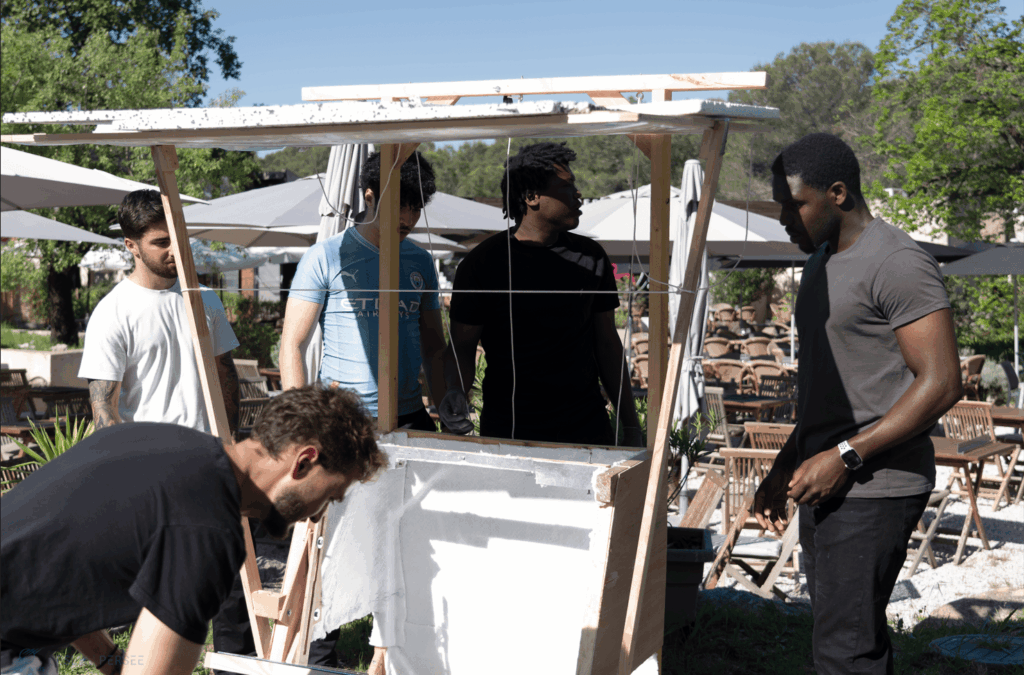

On Wednesday, April 30, Place Sophie Laffitte, opposite the Sophia Antipolis campus, was transformed into an open-air laboratory. After several weeks of design, optimization, and testing, second-year engineering students from Mines Paris – PSL, accompanied by learners from Industreet, presented their solar oven prototypes to a curious and enthusiastic audience.
This project, carried out as part of the “Undersolar” Research Trimester, aimed to design two models of solar ovens for professional use, particularly in the catering industry, using a low-tech approach: energy efficiency, accessible materials, and simplified maintenance.
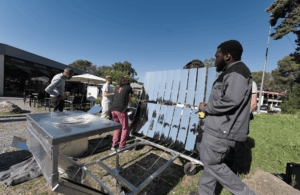
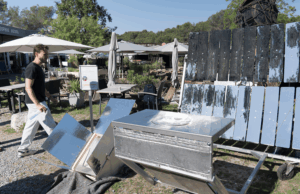
To test their prototypes, the students worked hand in hand with a chef. On the menu: risotto, French toast, and pancakes—all cooked entirely using solar energy, with the help of two ingenious systems:
The students explored the thermo-mechanical aspects of the devices in depth. “We were able to develop our knowledge of mechanics. My goal was for the oven to be able to rotate at the same time as the sun’s rays,” explains Chloé, an engineering student, emphasizing the importance of dynamic orientation in optimizing efficiency.
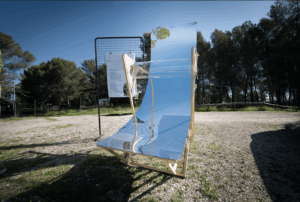
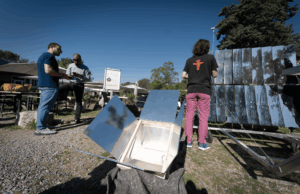
This public presentation gave visitors, both passers-by and professionals, the opportunity to discover the concrete results of the Undersolar project. Technical discussions, tastings, educational explanations: the students enthusiastically shared their experiences and what they had learned throughout the term.
A true example of teaching through research, where engineering, sustainable development, and creativity come together… under the sun!
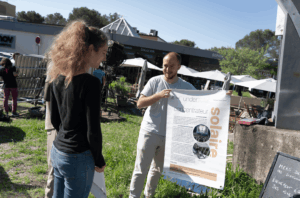
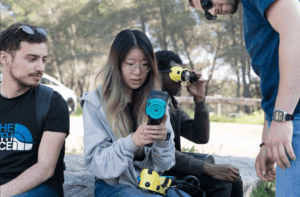
![[LOW-TECH] UNDERSOLAR engineering project: a solar furnace for the Biot glassworks](https://www.minesparis.psl.eu/wp-content/uploads/2024/05/IMG_5843-scaled.jpg)
Mines Paris – PSL trains tomorrow’s engineers in sustainable practices, notably through the design of concentrated solar furnaces, in collaboration wi...